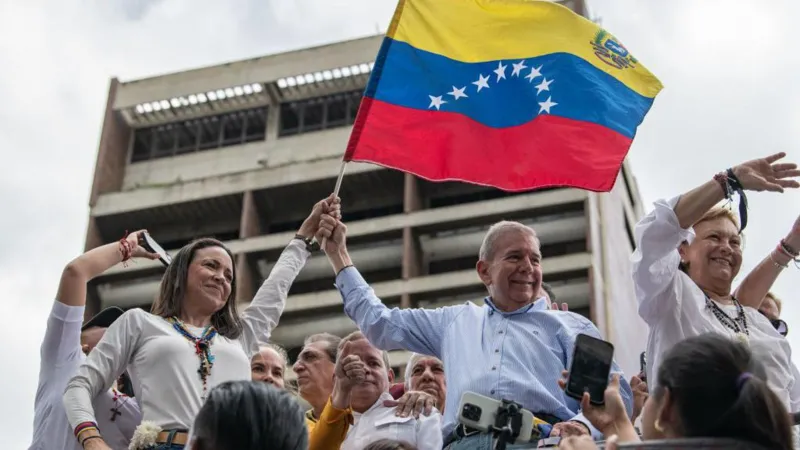In a dramatic turn of events in Venezuela, a judge has issued an arrest warrant for Edmundo Gonzalez, the opposition candidate in the country’s controversial recent presidential election. The move marks a significant escalation in the country’s already tense political climate, which reflects deep divisions and allegations of electoral fraud.
The arrest warrant was granted following a request by the public prosecutor’s office, which is allied to President Nicolás Maduro. The decision comes after a tumultuous election in July, which has been marred by controversy and conflicting claims of victory.
After the election: tensions and accusations
Venezuela’s electoral council declared Nicolás Maduro the winner in July’s presidential election. However, this council is widely believed to have favored Maduro, raising doubts about the legitimacy of the results. Despite this official declaration, the government has yet to release any concrete evidence certifying Maduro’s alleged victory. On the other hand, the opposition, led by Gonzalez, has released its own data, indicating a decisive victory for their candidate.
Venezuela’s opposition, buoyed by its own polling data, has been vocal in challenging the official results. They claim that Gonzalez won by a huge margin of over 30%. This claim has further intensified the political conflict and has resulted in widespread public protests.
Arrest warrant: An escalation
Judge Edward Briceño, known for handling terrorism-related cases, issued an arrest warrant for Gonzalez shortly after the public prosecutor’s office filed a petition for it. The charges against Gonzalez include serious allegations such as dereliction of public duties, document falsification, incitement to disobedience, and subversion of the system. Gonzalez, who has been in hiding since the election, has consistently denied any wrongdoing, saying the charges are politically motivated.
President Maduro defended the move, saying that “no one in this country is above the law, above the institutions.” This rhetoric underscores the government’s stance to maintain control and address what it sees as challenges to its authority.
International reaction and diplomatic fallout
The international community has reacted sharply to the developments in Venezuela. The European Union has refused to recognize Maduro’s victory, and has demanded transparency and a thorough review of the election results. Several Latin American leaders have joined the call for a transparent electoral process, including Brazilian President Lula, who had previously supported Maduro.
In contrast, the United States has recognized Gonzalez as the rightful winner, and described it as overwhelming evidence of Maduro’s defeat. This divergence in international views has further polarized the situation, complicating efforts to resolve and mediate the crisis.
The United States has also taken direct action by seizing an aircraft linked to Maduro’s government, accusing it of violating sanctions. In response, Maduro’s government has denounced the US move as an act of “theft” and illegal imposition of will. This exchange of accusations and sanctions highlights the deteriorating diplomatic relations between Venezuela and the US.
Government crackdown and public unrest
The Maduro administration has intensified its crackdown on dissent following the election. More than 2,400 people have been detained, creating what the United Nations describes as a “climate of fear” in Venezuela. The arrest warrant for Gonzalez has added another layer to an already tense situation, with fears that it could lead to more repression and unrest.
The Venezuelan public response has been marked by protests and demonstrations demanding transparency and accountability. The arrest warrant has only heightened tensions, with many seeing it as a symbol of the government’s aggressive stance against opposition leaders.
The way forward: uncertain and tumultuous
As Venezuela goes through this period of intense political crisis, the way forward remains uncertain. The arrest warrant for Edmundo Gonzalez has escalated the conflict between the government and the opposition, raising broader geopolitical and domestic tensions.
The Venezuelan government’s actions and the varying reactions of the international community have underscored the complexities of the situation. The future of Venezuela’s political landscape will depend on how these tensions are managed and whether a solution can be found that addresses both domestic grievances and international concerns.
Meanwhile, Venezuelans continue to face a turbulent environment with frequent protests, political instability, and economic challenges. The international community is watching closely, hoping for a solution that will bring stability and democracy to the South American nation.
